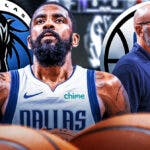Ironically, the immensely popular centerpiece of the Atlanta Hawks franchise who started the All-Star Game at 21 years old is directly connected to one of the more maligned draft decisions in recent NBA history. In fact, Trae Young was considered the weak end of the imbalanced deal between Atlanta and the Dallas Mavericks.
At the 2018 NBA Draft, Atlanta traded the No. 3 pick (Luka Doncic) to the Dallas Mavericks for the No. 5 pick (Young) and another first-rounder in 2019 (Cam Reddish). As exciting as Young has been through his first three seasons, many rank Doncic higher at this point in their careers.
Both Atlanta and Dallas are playoff teams in 2021 and it's the Hawks who clinched the No. 5 seed in the Eastern Conference. Led by Trae Young, Atlanta's offense was one of the most dynamic in 2021. For intents of this piece, Young is off the list as it's tough to peg where he'd be given he's an active player for Atlanta early on in his career.
The Hawks franchise dates back to the great St. Louis teams of the 1950s. Let's revisit the ten best picks in Hawks history. (Spoiler: they haven't drafted spectacularly since the early 1970s, contributing to their 59-year streak of not making the Finals.)
10) Jeff Teague: No. 19, 2009
Teague's career peaked in 2014-15 while playing for Mike Budenholzer's 60-win Hawks team. Teague averaged 15.9 points and 7.0 assists per game, earning the only All-Star nod of his career. Teague played seven seasons in Atlanta, and averaged 15.1 PPG and 6.4 APG over the final five. Not bad for a No. 19 pick.
9) Doc Rivers: No. 31, 1983
Rivers ran point for the contending Hawks squads of the 1980s led by Dominque Wilkins. Rivers was consistent and reliable on the floor on both ends, and made the All-Star game in 1987-88 when he averaged 14.2 PPG, 9.3 APG and 1.8 steals per game. Not surprisingly, Rivers also won the J. Walter Kennedy Citizenship Award as a member of the Hawks. All in all, Rivers averaged 13.0 PPG and 6.8 APG over eight seasons in Atlanta, providing great value at No. 31.
8) Lou Hudson: No. 4, 1966
“Sweet Lou” Hudson and “Pistol” Pete Maravich formed a scintillating combination in the early 1970s. Hudson, a versatile wing, averaged 18.4 PPG as a rookie and rode his smooth shot to six All-Star teams. Overall, Hudson put up 22.2 PPG and 5.1 RPG in 11 seasons with the Hawks, playing in both St. Louis and Atlanta. In 1970, he made the All-NBA second team (25.4 PPG and 5.4 RPG). Hudson's teams qualified for the playoffs seven times, and, in 1977, his #23 became the second number to be retired by the franchise.
7) Lenny Wilkens: No. 6, 1960
Wilkens has an unparalleled legacy in basketball history. He has the second-most coaching wins in NBA history, and the most losses. Plus, he has been inducted three times into the Naismith Memorial Basketball Hall of Fame—as a player in 1989, as a coach in 1998, and as an assistant coach for the Dream Team in 2010. (He is also a member of the College Basketball Hall of Fame.)
Wilkens' legendary NBA journey began when the St. Louis Hawks took him sixth in the 1960 draft. Wilkens blossomed into a star and made five of his nine NBA All-Star Games while playing with the Hawks. In 1967-68, his final season in St. Louis, he finished second to Wilt Chamberlain in MVP voting.
A 6'1 point guard with a knack for rebounding, Wilkens averaged 15.7 PPG, 5.5 APG, and 5.1 RPG in eight Hawks seasons. Three decades later, he won Coach of the Year with Atlanta.
6) Josh Smith: No. 17, 2004
The back half of Josh Smith's career is forgettable, but he was a major X-factor on both ends for six straight playoff teams while in Atlanta. Smith became the youngest player in NBA history to block 1,000 shots, and he made the All-Defensive Second Team in 2009-10. His defensive versatility and position-less nature was ahead of its time, and his explosive hops worked to his favor around the rim and on the glass. Plus, Smith was always a threat to produce spectacular highlights (including in the epic 2005 Dunk Contest).
Yes, his three-point shooting and shot selection was constantly lampooned and and he never quite put it all together, but he remains a great find at No. 17. The Georgia-native averaged 15.3 PPG, 8.0 RPG, 2.1 BPG, and 1.3 SPG in nine seasons for the Hawks. Smith would leave Atlanta in 2013 NBA free agency to sign with the Detroit Pistons. That did not go well.
5) Jason Terry: No. 19, 1999
The confident guard who won an NCAA Championship at Arizona in 1997 soon turned into the best player for the early-2000s Hawks squads. After being selected No. 19 overall, Terry averaged a career-high 19.7 PPG in his sophomore campaign. Over his five seasons in Atlanta, Terry put up 16.2 PPG and 5.5 APG.
In 2004, Jet was traded along with Alan Henderson to Dallas, where he would go on to win the Sixth Man of the Year award (2009) and an NBA title (2011).
4) Kevin Willis: No. 11, 1984
Willis was never spectacular, but he gave Atlanta solid return on investment for a No. 11 pick. The center averaged a double-double during four different seasons, and made his only All-Star team (and All-NBA Third Team) in 1991-92 when he averaged 18.3 PPG and 15.5 RPG. In his Hawks career, Willis posted 14.1 PPG and 9.7 RPG.
In general, Willis is best known for his longevity: he would play 10 more seasons with seven different organizations after his Hawks run, and ranks eighth on the league's all-time games played list.
3) Al Horford: No. 3, 2007
Horford was coming off two national titles at Florida when Atlanta took him with the No. 3 pick in 2007. Like Willis, he wasn't flashy, but was utterly consistent and a safe bet for a double-double. Atlanta qualified for the playoffs in his rookie season, and did so in each of Horford's nine seasons in town.
Horford averaged 14.0 PPG on 53.5% shooting for the Hawks, while providing invaluable versatility and high-IQ defense that contributed to four All-Star selections. Horford produced 33.3 regular season Win Shares and made the All-NBA third team in 2010-11.
2) Pete Maravich: No. 3, 1970
Bob Lanier and Rudy Tomjanovich are both in the Hall of Fame for their basketball accomplishments, but I'm not sure how Pistol Pete slipped to No. 3 in the 1970 draft. Maravich was one the most prolific college basketball players in history, averaging 44.2 PPG(!) for LSU with a creative flare that was lightyears ahead of his contemporaries.
As a rookie for Atlanta, Maravich averaged 23.2 PPG — a number that would have been considerably higher had three-pointers existed in his day (as would his LSU numbers). In 1973, he made his first All-Star team and was named second team All-NBA, averaging 26.1 PPG, 6.9 APG, and 4.9 RPG. Maravich would make another All-Star team in 1974, only to be traded to the New Orleans Jazz the following season.
1) Bob Pettit: No. 1, 1955
Pettit is the only long-time Hawks member who can be considered a top 30 all-time player. Pettit was one of the elite stars of the league's salad days, winning two MVPs (1956, 1959), Rookie of the Year (1955), two scoring titles, and posting 26.4 PPG and 16.2 RPG over his career. More significantly, he led the Hawks to the franchise's only championship (1957-58) and last four Finals appearances. In 88 playoff games, he averaged 25.5 PPG and 14.8 RPG.
Pettit made the All-Star Game and All-NBA team in all 11 of his NBA seasons, including 10 first-team selections.
In Game 6 of the 1958 Finals, Pettit memorably dropped 50 points on Bill Russell of the Boston Celtics, including scoring 18 of his the Hawks' final 21 points.




